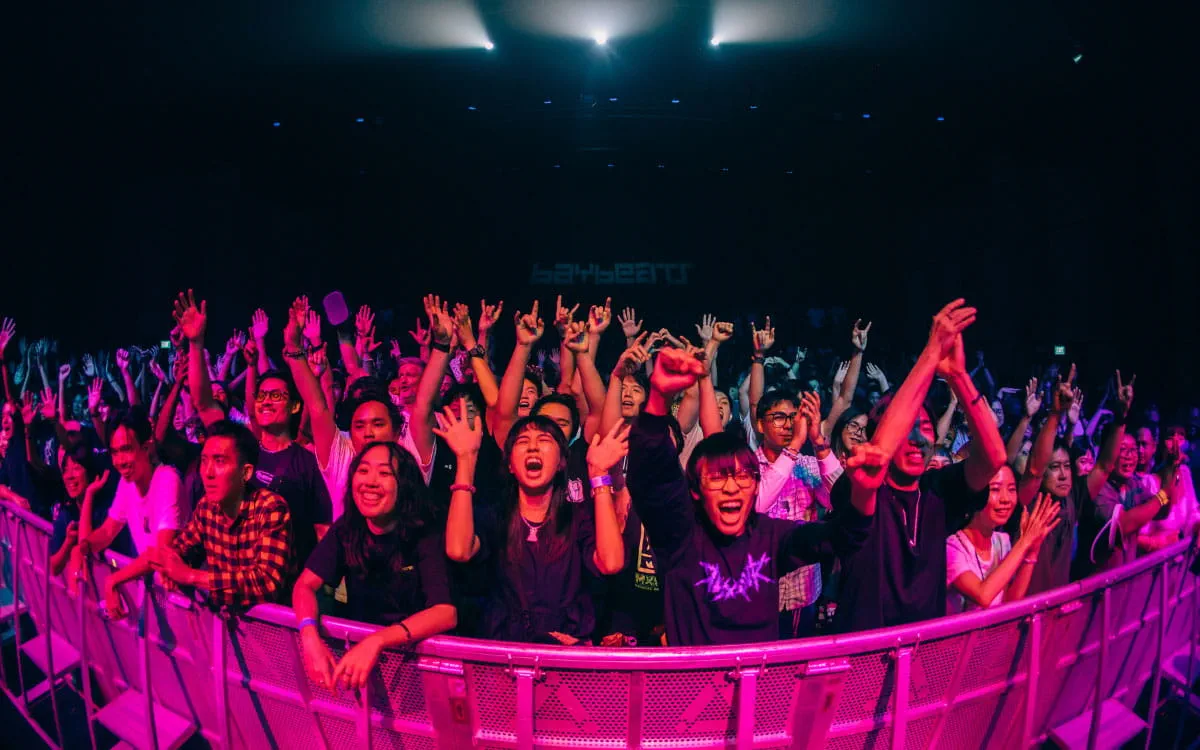We’ve been paying close attention to the ups and downs of China’s burgeoning hip hop scene. But after two street dance-focused reality shows both achieved massive success this year, it’s worth checking in: what’s up with China’s hip hop dance scene?
VICE China just put out a new documentary series that aims to answer that question. Just Street Dance (只有街舞) premiered on August 20th, and will be released over thirteen episodes. The series is divided according to five concepts: Origin, Battle, Fun, Fame, and Transformation.
“Those five concepts are our five criteria for youth culture. Not just hip hop dance, but anything else could be covered by these topics. They fit any and every culture in China,” director Sun Yu told RADII. “We don’t want to dwell on our own opinions in the documentary, but focus instead on recording real things, and giving the audience some insight into hip hop dance through our lens. So we called it, Just Street Dance.”

Director Sun Yu, right
Shot over fifty days, the documentary explores China’s hip hop dance community in cities from Urumqi and Karamay in Xinjiang, all the way to Chengdu, Guangzhou, Shanghai, and Beijing. MC Yily is a bboy and event MC, who works full-time managing railway shipment records. He took a 20-day leave from work in order to lead Sun Yu and his production team to meet with street dance OGs across the country, and to explore the underground dance scene that existed long before rap got its start in China.

MC Yily, on the right, on hip hop radio program The Park with Wes Chen
In an interview with RADII earlier this month, Sun Yu and MC Yily both answered some questions about the documentary, and shared their insights on hip hop dance in China.
First Contact with Hip Hop
Sun: My personal experience goes back to 1998 or 2000, back when k-pop idol groups like H.O.T. and NRG were trendy. My friends and classmates thought, “wow, this is different, and it’s cool” — that’s when I first learned the phrase “hip hop.” But I thought hip hop was just dance and rap. Later on I learned about back in the ’80s in China, when the “thunderbolt dance” fad was in full swing, people walking down the street with boom boxes on their shoulders and all that (Editor’s Note: 霹雳舞, literally, thunderbolt dance, was the earliest Chinese incarnation of hip hop dance, inspired by illegal tapes of movies like Breakin’ and Beat Street smuggled in from Hong Kong).
VICE China is a youth culture-focused media outlet, so we’re always watching the development of new subcultures, and hip hop dance is no exception. Actually, the history of street dance in China goes back way longer than the history of rap here. That idea of a rich culture with a real history to it made us want to dive into the subject.
Yily: Around 2005 or 2006, I saw a group of dancers getting down in a park in Altay, Xinjiang. That was the start of my story with the culture. Now I work full-time in Urumqi as a railway record keeper, but hip hop dance will always be part of my life.

Dino, a veteran popper who has won several world championships
Online Reality Shows
Sun: The recent reality shows let the public understand some basic aspects of the dance, and made it easier for us to tell our story. Moreover, since a lot of the dancers we shot were in those shows, they didn’t record with us until the shows were done. So a lot of those storylines made it into our documentary.
Yily: I watched some of them. They’re full of — how should I put it — Chinese characteristics. The shows aim to make stars, not promote the culture. But on the positive side, they do attract attention to the culture. At the same time though, it makes some dancers forget where they came from, living out a dream that’s not real.

Yily talking with 冯正 Sonic, co-founder of 5+5, one of the biggest and earliest hip hop dance crews, as well as co-founder of the KOD Street Dance World Cup
Is New School Choreography also “Hip Hop” Dance?
Yily: My feeling is that, after the new school style of choreography caught on, a lot of traditional dancers treated it like a brand new style, rather than as an extension of the existing foundation. And people are more interested in the new styles, since they’re more reflective of the current time and current music tastes. So compared to traditional hip hop dance (popping, breaking, etc.), it seems like the new style is more popular right now, and that’s been the source of much conflict and controversy. But in the end, the new styles will also leave the limelight, and become outdated as people move on to the next thing. So no matter what style of dance, the most important thing is to persevere, and not forget why you started.

X-Crew, a top dance crew in China
China’s Hip Hop Dancers
Sun: No matter which city you’re in, there are dancers there who just love to dance. Chilling and hanging out with dancers is the best. They don’t talk much. but when there’s good music, they’ll just start grooving. The thing that impressed me the most was that we could just talk and chill with these big-name dancers like old friends, and that they were excited about VICE China, which I appreciated. They really want to help people understand China’s hip hop dance scene.
Yily: Chinese dancers have already reached a very high level in terms of skill. But the production and creativity of their work still isn’t at the level of some other Asian countries. It might be because the scene is so saturated with battles, that people think think that’s the only way to do it. The first dancers in China got to where they are through battles, so they haven’t reached the point where they think about how to treat their dance more like an art form.

Dan Dan, on the right, co-founder of SPY dance studio
Why Dance?
Sun: Let me put it this way – why do people eat food? They just have to.
Yily: I think hip hop dance is more than just a dance style. It’s an outlet for free and unruly souls. They dance to find their own peace.
This month, high-level competitions like Hip Hop International and Keep On Dancing took place, pulling in dancers and spectators from across China. All the more reason for the new generation of dancers to revisit the community’s origins, and learn how hip hop dance in China went from underground disco halls to international stages.
—
Photos courtesy of VICE China
You might also like:
 After the “Hip-Hop Ban”, Chinese TV Turns to Street Dancing ShowsArticle Mar 20, 2018
After the “Hip-Hop Ban”, Chinese TV Turns to Street Dancing ShowsArticle Mar 20, 2018


















